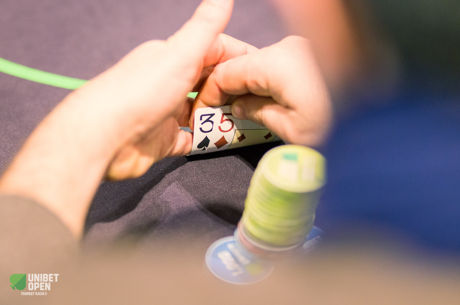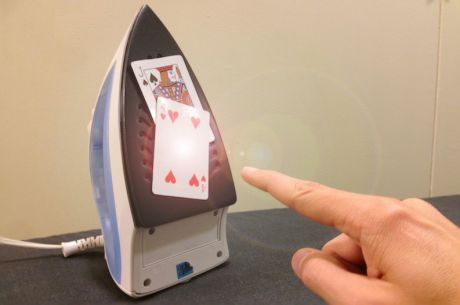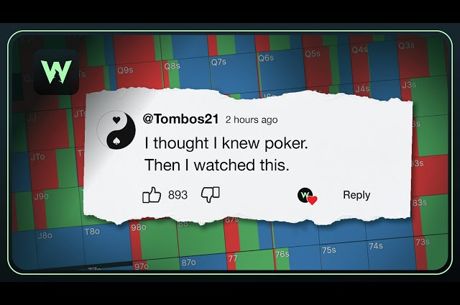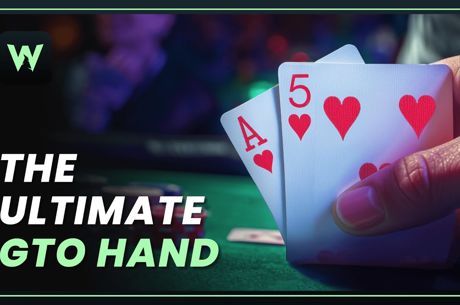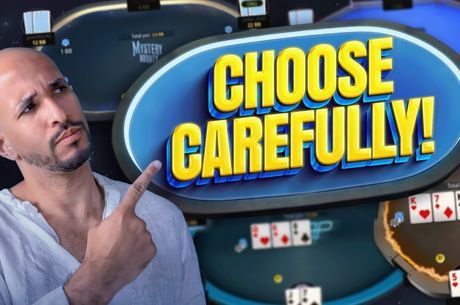Four Reasons Why You Should Have a Lucky Poker Hand (and Four Reasons Why You Shouldn’t)
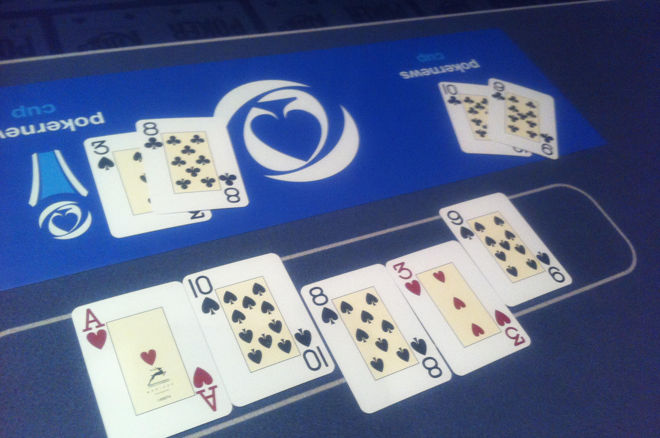
Like many poker players, I have a favorite “junk” hand: Deuce-four. How it first came to my attention isn’t important here, but I’ve been playing it aggressively for years, with sometimes spectacular results.
I’m well aware that the standard, nearly universal poker advice is to throw 2x4x in the muck at the earliest opportunity, under almost all circumstances. Can that advice and my contrary practice be reconciled? Let’s look at the pros and cons of having a favorite junk hand — one that you play in all sorts of situations that strategy books would condemn.
First, let’s clarify terms. Despite the headline, there’s no such thing as a “lucky” hand for anybody. To believe that a junk hand wins more often for you than it statistically should requires distorted memory, or even flat-out magical thinking.
I use the term because when I have to show my cards to win the pot, telling opponents that 2x4x is my “lucky hand” is the quickest explanation for why I was playing it, and one that is readily accepted at poker tables. If saying that makes them believe that there actually are lucky hands, or that I’m dumb enough to believe that there are, so much the better.
The real reasons that I play it — and the reasons that you might want to consider adopting your own “lucky hand” — are these:
1. It’s fun
It’s great to crack somebody’s aces by flopping a set of kings. But it’s nowhere near as much fun as playing something they never see coming, and can barely believe even when they do see it.
I have a friend who devotes much of his poker blog to how he beats opponents’ biggest hands with complete junk, and the outraged, fuming reactions that doing so provokes, especially among the nits of the poker world. He favors 6x3x-offsuit, and calls it “The Spanish Inquisition.” Then, when claiming a pot he had no business being in, he gets to show it and say, “Nobody expects the Spanish Inquisition!”
Come on — if you don’t agree that that’s fun, you’re not human.
2. It ups your bluffing frequency
Most regular low-stakes players don’t play aggressively enough, including not bluffing enough. Junk hands rarely make a hand strong enough to play for value, so committing to playing one of them is mostly a commitment to bluff at random times.
This will often be profitable in and of itself, especially if you are a tight-aggressive player at baseline. But it’s also excellent practice. It will help teach you that in many poker situations, the cards you’re holding simply don’t matter much. That’s a valuable piece of experiential knowledge.
3. You can win monster pots
It’s a general truism of poker that your richest profits will tend to come when your actual holding is outside of the range that any opponent will put you on, so that they are caught completely off-guard.
Unless you play a lot of junk hands, so that opponents know you’re an “any two cards” kind of player, that will almost always describe a situation such as flopping Ax3x5x, with 4x2x in the hole. It’s then child’s play to take the entire stack of the guy who has hit his set of aces, and thinks he’s home free.
4. If others know your “lucky” hand, it scares them
For a while, I played online poker under the screen name, “Dr. Flush.” Amusingly, this caused people in chat to speculate that I must be a plumber, or maybe a urologist. (I’m neither.)
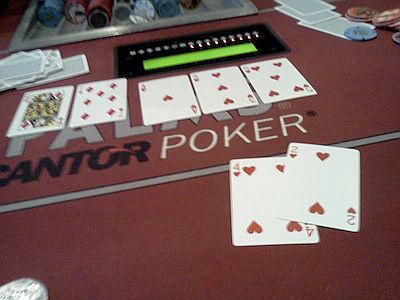
But what was most interesting was how much more often my bluffs worked when the board had three of a suit. I didn’t tabulate results compared to when I’ve used other screen names, but I had a strong subjective sense that the name was priming players to believe that I chased a lot of flush draws, and therefore was more likely actually to have it.
Similarly, when I play in home games and the board has anything for which 4x2x would make a killer hand, I have a high rate of success in representing that’s what I actually have. It works because the others all know that’s my favorite hand, and that I play it every time it’s dealt. They can’t help thinking, as a result, that I may have hit big — whereas with any other player, they would dismiss the possibility that those are somebody’s down cards.
You can achieve the same effect in a live cash game among strangers by winning a pot, showing your cards, and announcing that’s your lucky hand and you play it every time. They’ll remember.
But in poker, as in life, there’s no such thing as a free lunch. Adopting a junk hand has a dark side, too:
1. You can fall victim to your own propaganda
Tell a lie often enough, and you might start to believe it. Here, telling people over and over again that some junky starting hand is super lucky for you can infiltrate your own cranium, such that you begin to think — consciously or subconsciously — that it really is, and act accordingly.
You might also become so committed to playing your Jx3x as if it were AxAx that you plow ahead, ignoring signs that somebody is going to be calling your bluff this time.
2. They’re trouble
Sure, once in a great while 2x4x will clobber Ax4x when the flop comes 4x4x2x. But if that third card is anything other than the deuce, you’re the one in deep doo-doo, even while you think you’re smelling like roses.
3. Drip, drip, drip
Most poker losses aren’t the whole-stack-at-a-time kind, but rather the slow, unnecessary leak of a few chips here and there. Most of the time, junk hands will lose you money — which is kind of why they’re widely considered “junk.” It will be hard for you to be certain that the rare big pots you win outweigh all the little ones that you lose with your pet hand.
4. Slippery slope
As I argued above, incorporating a junk hand into your range may well be good for your bottom line, if you’re judicious about it. But it’s awfully easy for rationalization to get to you. If a little is good, more is better, right? If you’re playing 2x4x, you can be tempted to add in 2x5x, and then 2x6x and 2x7x, and so on. This corrosive tendency will be particularly pronounced when you’re tired and/or stuck — and it can cost you a fortune.
So if you don’t already have a favored “lucky” hand, consider picking one. It can be a potent poker weapon. But be careful: it’s a weapon that can easily turn on you.
(In case you’re interested, I’ve chronicled a number of stories regarding the Mighty Deuce-Four here.)
Robert Woolley lives in Asheville, NC. He spent several years in Las Vegas and chronicled his life in poker on the “Poker Grump” blog.
Want to stay atop all the latest in the poker world? If so, make sure to get PokerNews updates on your social media outlets. Follow us on Twitter and find us on both Facebook and Google+!

